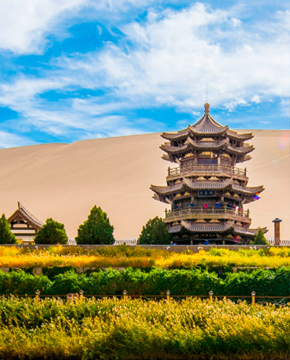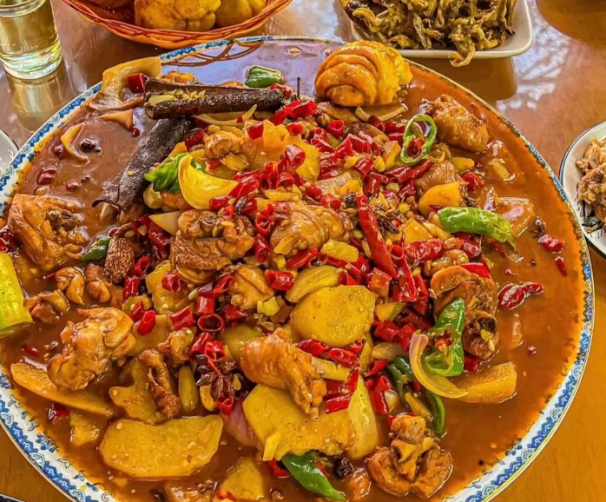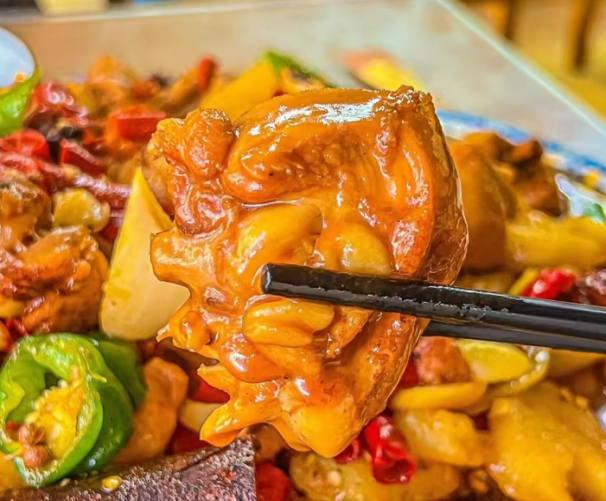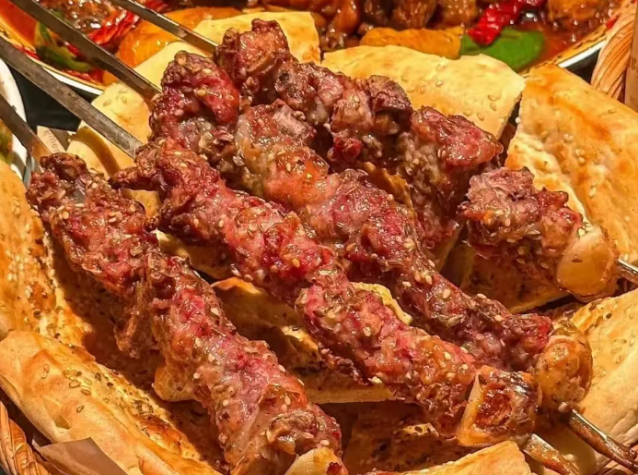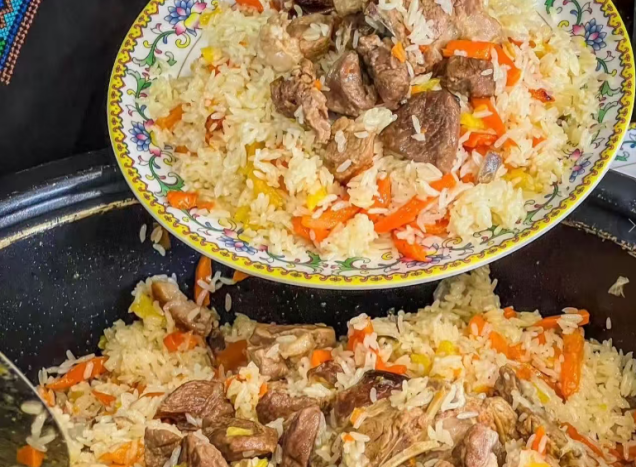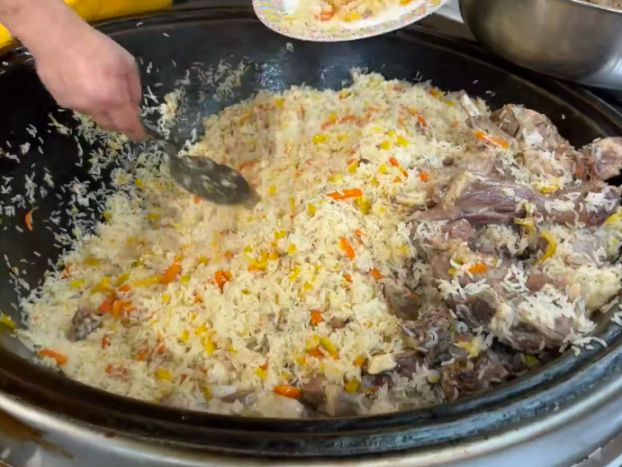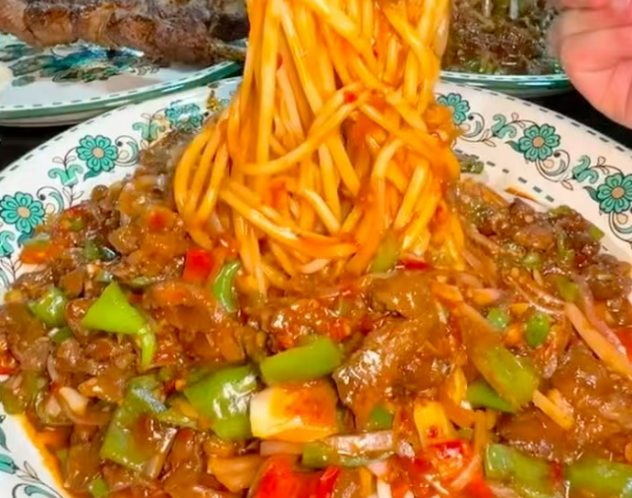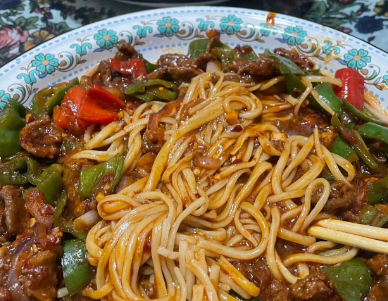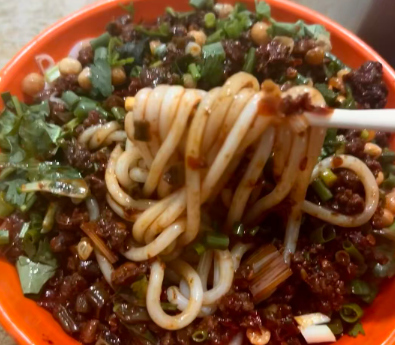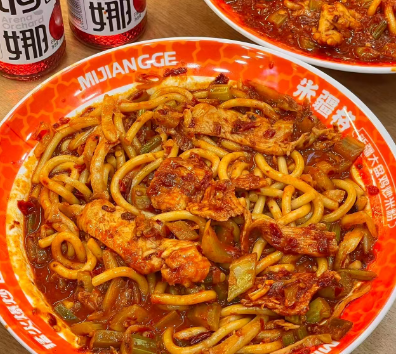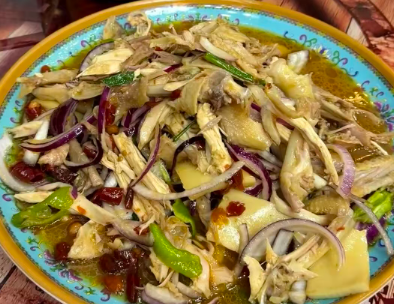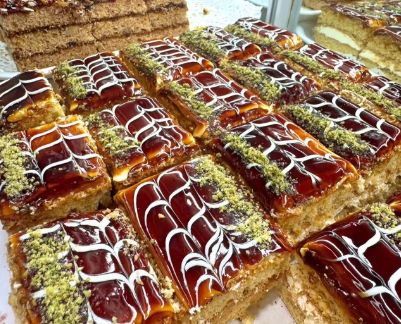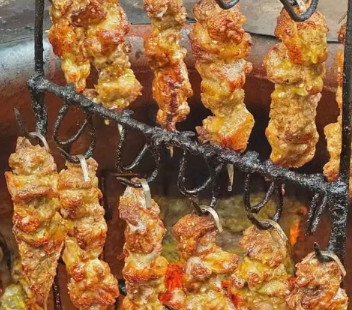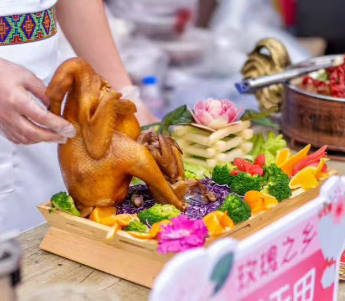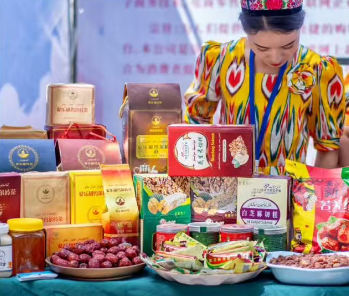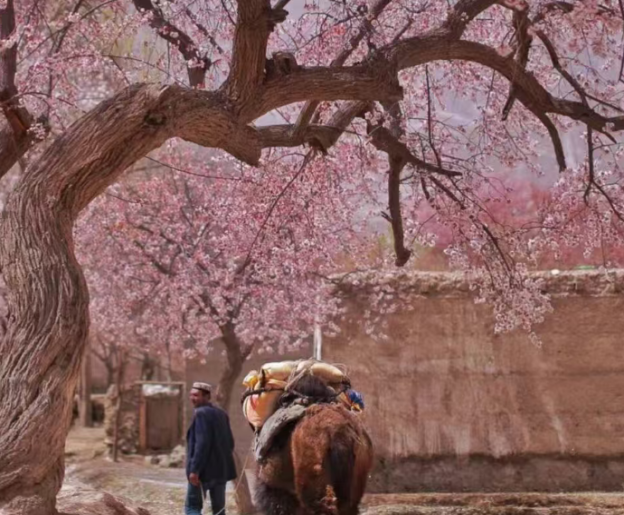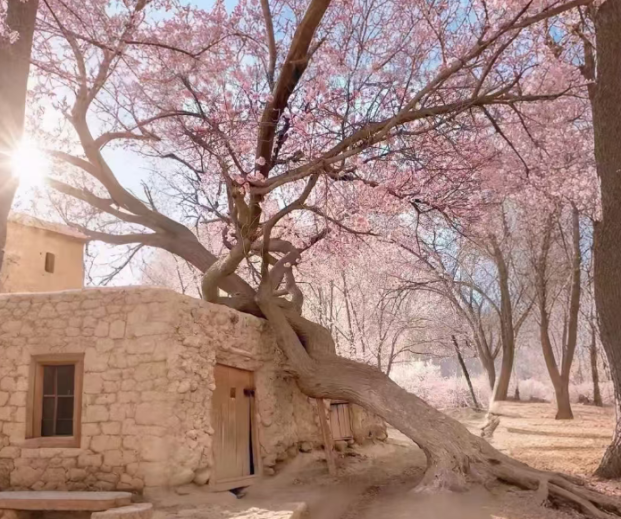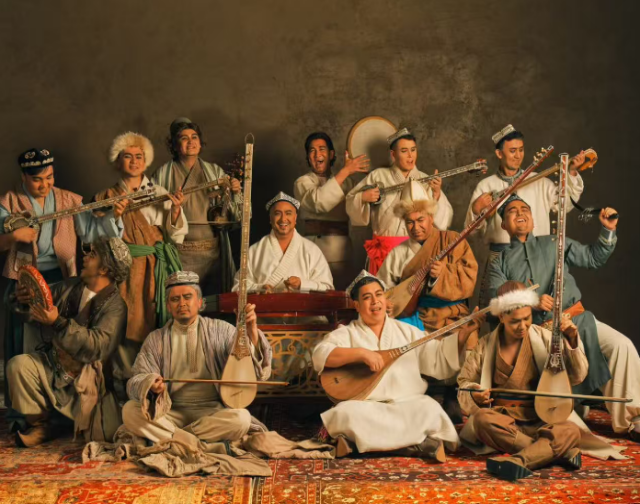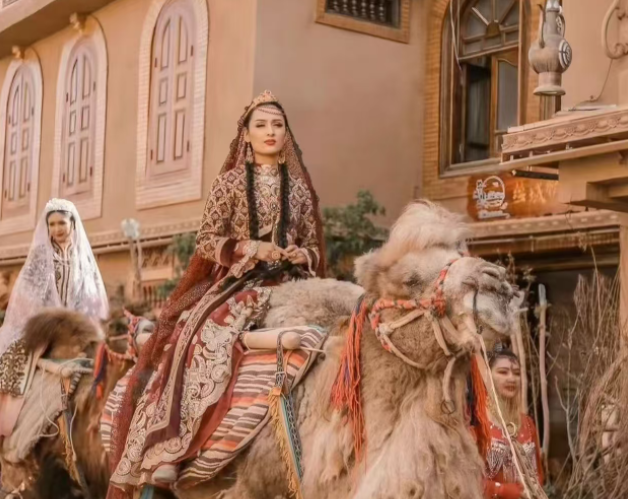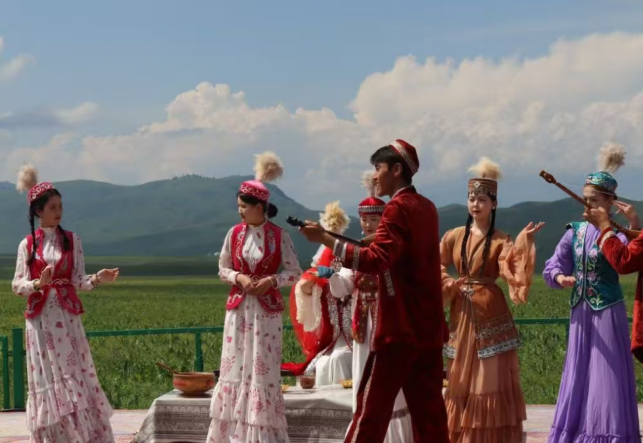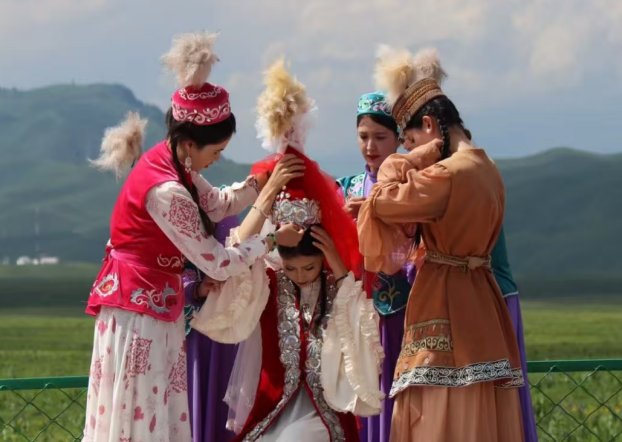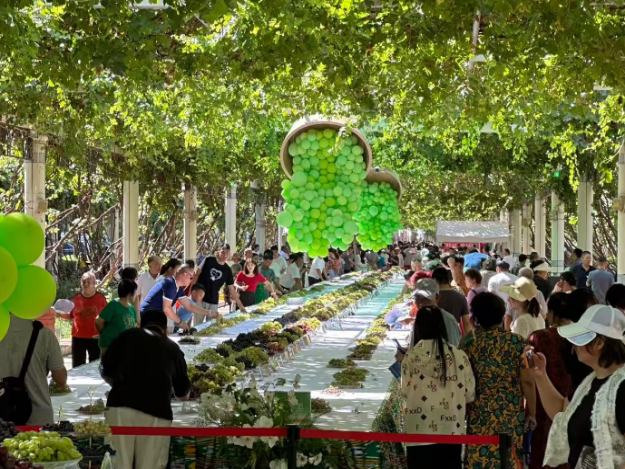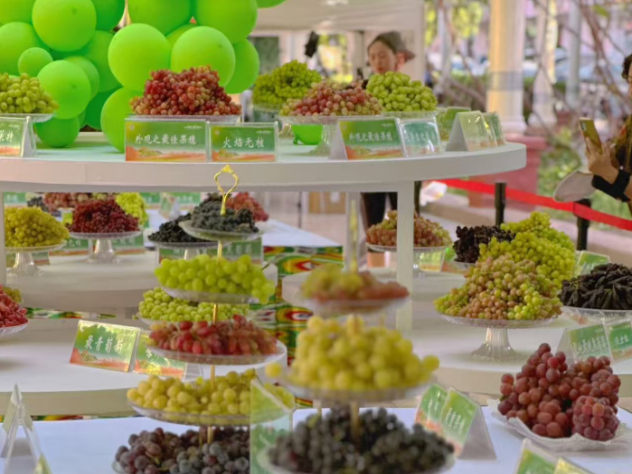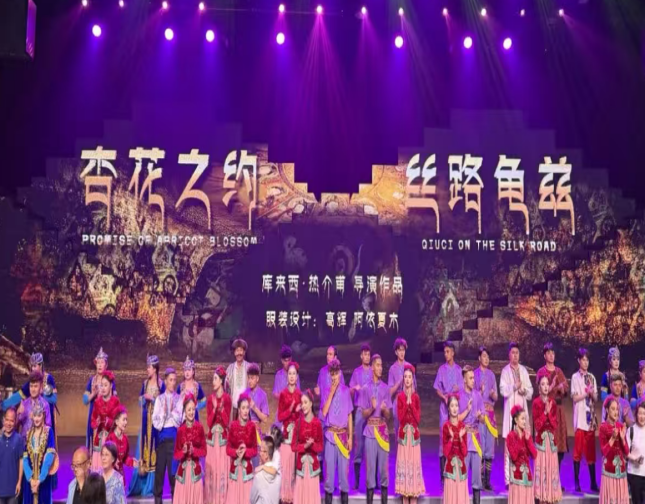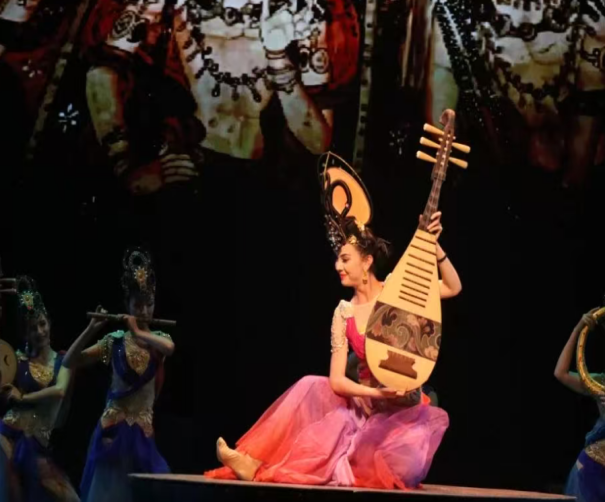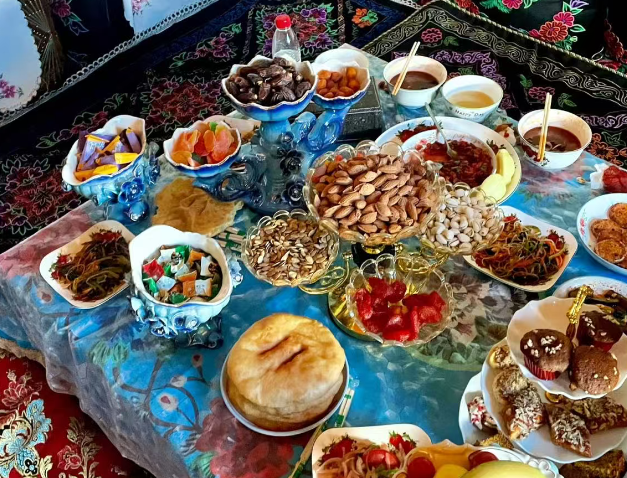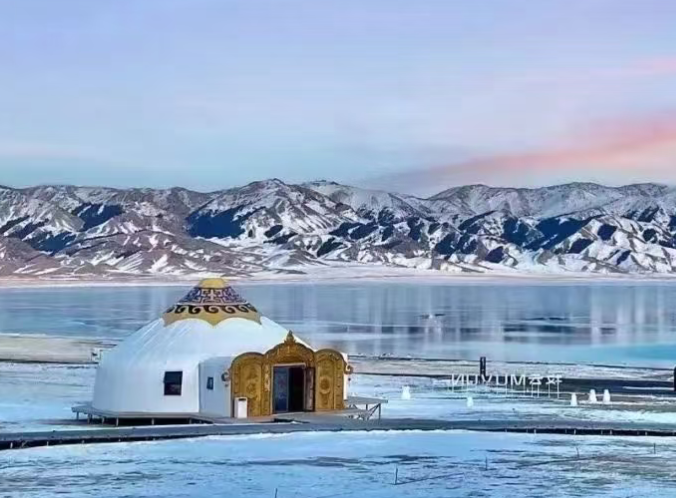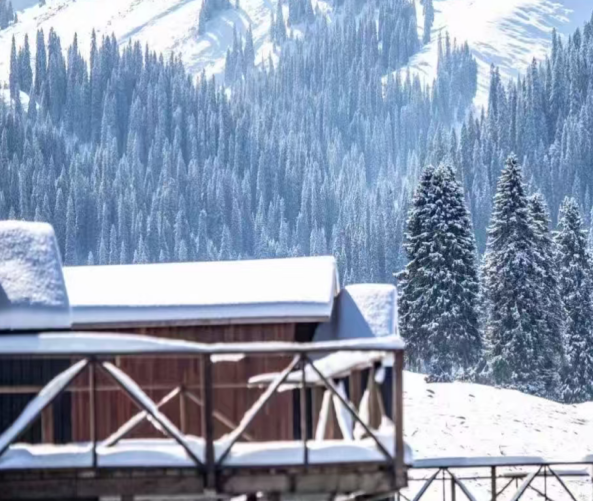A designed Xinjiang Travel Guide for Muslims
Why Choose Xinjiang as a must go destination for Muslim travelers?
Xinjiang is a place with various of religions and 56 ethinic groups, making it one of the provinical-level administrative regions in China with the most complete range of national minority. A variety of religions have coexisted harmoniously for a long time, jointly forming an important part of Xinjiang's diverse culture. According to the latest information, the proportion of Xinjiang Muslim population has reached to 56.3%, which makes a perfect friendly environment for Muslim travelers.
In Xinjiang, Among every 100 ethnic-style catering establishments, more than 60 are halal food restaurants! Featured halal catering even accounts for two-thirds (of the total). Meanwhile, many mosques can be seen almost everywhere in Xinjiang, provided some religious places for holding Muslim activities. Muslim tourists can enjoy the local halal food in many scenic spots as well, all the hotels and restaurants are provided exclusive halal food and snacks for Muslims in Xinjiang, which is convenient for Muslim travelers. In addition, during many traditional Muslim festivals like Corban Festival, Eid al-Fitr and other special days, Muslim tourists can participate in the activities with local people and enjoy the delicious cuisine! From the airport, train stations, bus stops, and even near the villages or counties you can also find your favourite halal food everywhere, here you can feel the unqiue charm of the silk road and satisfied your mouth when appreciate the stunning scenery of snow-capped mountains, old cities and grand deserts!
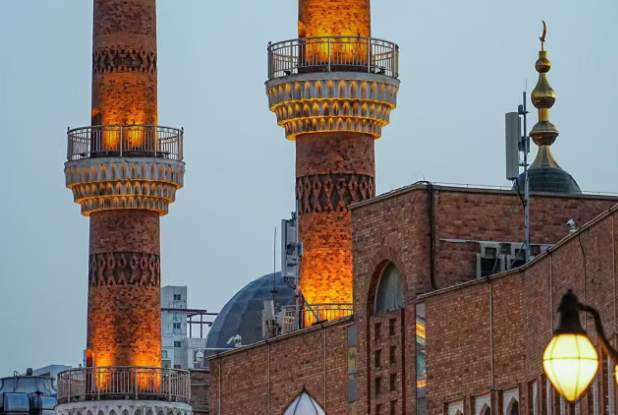
(Xinjiang People' Street, 2025)
Besides, Xinjiang is also the connect area of the ancient culture and Muslim culture from of old. Here, you can see numerous of mosques, religious sites and cultural relics such as Id Kah Mosque in Kashgar, which is one of the biggest mosque in China, it has a deep religious history and cultural significance. Xinjiang also cultivate many invaluable old cities like Turpan and Hami that symbolized the prosperity of the ancient Silk Road. Muslim tourists could have a better understanding about Muslim culture, visit the long-history mosques and the holy land of Muslim religion, experience deep connotation behind Muslim culture.
Travel Tips for Muslim Tourists in Xinjiang
1. In Xinjiang, the “halal” sign in most formal restaurants is a green background with a white crescent or star (some old brands use Arabic script).![]() Give priority to restaurants displaying this sign, especially those run by Uyghur or Hui people, as their ingredients and preparation processes usually adhere more strictly to halal standards.
Give priority to restaurants displaying this sign, especially those run by Uyghur or Hui people, as their ingredients and preparation processes usually adhere more strictly to halal standards.
2. When trying local cuisine, you can order classic halal dishes such as Samsa, Pailf, Xinjiang Laghman. Avoid dishes with unclear mixed ingredients (such as some complex-stuffed meatballs or dumplings).
3. If you need to pray daily, prioritize accommodations near mosques (e.g., guesthouses near Id Kah Mosque in Kashgar Old Town, or hotels near Shaanxi Grand Mosque in Urumqi's Tianshan District). Some hotels even indicate “XX minutes' walk to the mosque” to help you plan your schedule.
4. If you visit during Eid al-Adha or Eid al-Fitr, avoid loud noise on main roads around mosques and do not casually photograph worshippers during prayers. A small number of shops may close briefly (usually in the morning), so stock up on drinking water and halal snacks in advance to avoid running out.
5. Save local mosque contact numbers in advance (e.g., Kashgar Id Kah Mosque: 0998-2822570) and halal catering association hotlines. If you encounter problems with food or accommodation, you can call for advice or help.
Top 5 Reasons Muslim Travelers Must Visit Xinjiang:
1. Delicious Halal Food
Top 10 Must-Try Halal Dishes in Xinjiang
Influenced by Muslim food culture, most of the restaurants in Xinjiang are provided Halal food for tourists. Some delicious local halal food like Mutton, Beef, Xinjiang Pilaf, Laghman and Samsa are loved by the public. Besides, Muslim tourists can find various of halal food or snacks almost in every local markets and restaurants easily, which is convenient to tourists enjoy the authentic flavor of Xinjiang food. Muslim travelers can taste many dishes without worries. Here are some recommended delicacies for Muslim tourists in Xinjiang.
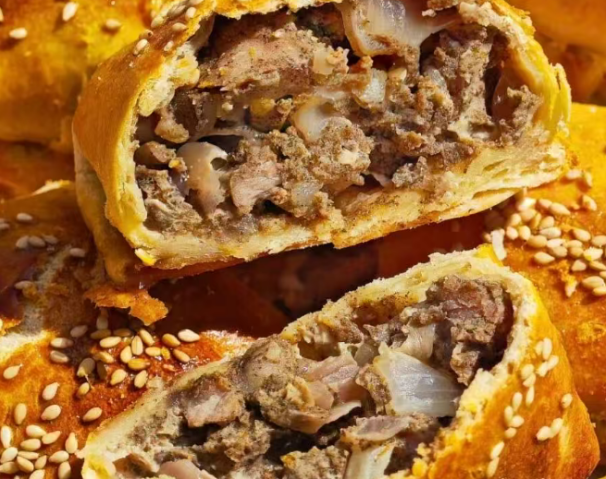 |
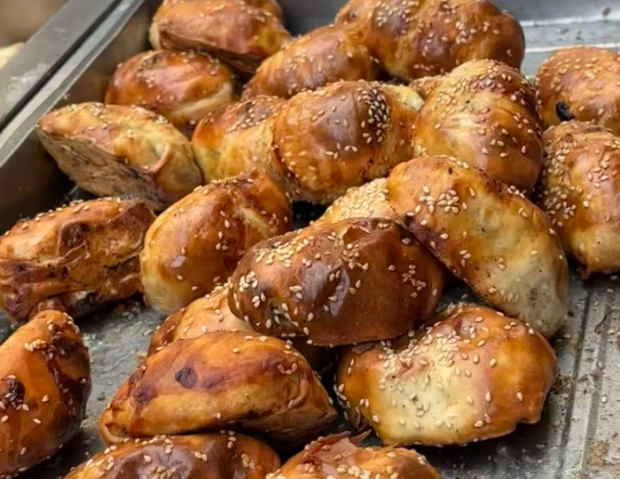 |
Xinjiang Samsa | |
|
|
Xinjiang Big Plate Chicken | |
|
|
|
Beef and Mutton Kebabs Most of the cattle and sheep raised in Xinjiang are high-quality local breeds such as Altay sheep and black-headed sheep. Their meat is firm yet tender, with evenly distributed fat and almost no muttony odor. Grilled over charcoal right on the spot, this cooking method highlights the original, natural flavor of the ingredients—definitely worth a try! | |
|
|
|
Xinjiang Pilaf Xinjiang Pilaf is cooked with fresh carrots, sweet onions, secretly-made mutton and Xinjiang long-grain rice, the fragrant flavor and thick taste is perfect to satisfy your empty stomach. In the hot summer, you can eat pilaf while drinking a big cup of iced carrot juice (like “神内”carrot juice), you can fully feel the exotic charm of Xinjiang—a place that once you come, you won't want to leave. | |
|
|
|
Xinjiang Laghman Xinjiang Laghman is a famous choice for you and also a homely dish in everyone's daily life. It represents the diversified food culture in Xinjiang, people select fresh halal beef or mutton, stir-frying with various vegetables, it has a fresh and tender meat texture, crisp outside but juicy inside, together with the pure fragrant. Provide a magic experience to your tongue. | |
|
|
|
Xinjiang Fried Rice Noodles Among various of Xinjiang food, the Xinjiang Fried Rice Noodles has the most followers and loved by many people. This classical food is the most popular dish in people's daily life. From the scent of spices to crisp cucumber, they jointly composed a perfect balance of taste, every bite could lead you to endless aftertastes. If you are planning to visit Xinjiang, please do not miss this gourmet! | |
|
|
|
Spicy Chicken Cold Dish Xinjiang Spicy Chicken Cold Dish is a popular food in Xinjiang. People cut the whole chicken into chunks and add spices, put some fresh vegetable accompany with the chicken. You can taste both pepper and spicy flavor in one bite. No matter eating with a bowl of hot rice or cool juice, you can fully enjoy the uniquely delicious local cuisine! | |
|
|
|
Xinjiang Milk Products All mainstream dairy products in Xinjiang (e.g., yogurt, milk, cheese) are produced under halal standards—from cattle feeding (no non-halal additives) to processing. Unlike industrial dairy, many local products are homemade or small-batch produced (e.g., hand-stirred yogurt, fermented milk drink "kumis"), with stronger creaminess and natural sourness. | |
|
|
|
Xinjiang Ethnic Pastries Most ethnic pastries in Xinjiang are made with natural ingredients and crafted through traditional handmade techniques, offering a rich, multi-layered texture. Common pastries such as Cream Puff Cakes (Naiyou Sushebing), Almond Cakes (Xingren Bing), and Walnut Cakes (Hetao Gao) boast a crispy outer layer and soft interior—sweet but not cloying, emitting an irresistible aroma. Take a bite, and you'll be greeted with a burst of sweetness that lingers on the palate, leaving a lasting impression. | |
|
|
|
Kashgar Barbecue The most popular barbecue in Kashgar is called Nan Pit Meat. A nan pit is an earthen pit heated by fire: charcoal is laid at the bottom of the pit, and skewers of meat are hung inside to roast over the fire. This special cooking method locks in the meat's juices and aroma, resulting in meat that's crispy on the outside and tender, juicy on the inside. | |
2. Perfect All Seasons Climate
Xinjiang is located in the northwest of China and has a temperate continental climate, characterized by low rainfall, abundant sunshine, and distinct seasons. Although summer daytime can be hot, the temperature difference between day and night is significant, making the evenings cool and comfortable. Whenever you visit, you can enjoy different beautiful sceneries. From the alpine grasslands, lakes, and forests in northern Xinjiang to the deserts, Gobi, and ancient oasis cities in southern Xinjiang, each region showcases its unique charm in different seasons.
| Best Time | Highlights |
| (April-May) | In northern Xinjiang, wild apricot blossoms and white crocuses bloom one after another, while the grasslands begin to turn green. On the Pamirs in southern Xinjiang, century-old apricot trees burst into full bloom along the river valleys, creating a striking contrast with the snow-capped mountains and yellow earth. |
| (June-August) | In northern Xinjiang, the grasslands are lush and green, with wildflowers in full bloom—lavender and rapeseed flowers appear in succession—while Kanas Lake shimmers under the sunlight. The Duku Highway is open, allowing you to experience all four seasons in a single day. In southern Xinjiang, the ancient city of Kashgar reveals its unique cultural charm in the summer. |
(September-November) |
In northern Xinjiang, places like Kanas and Hemu are ablaze with autumn colors—the birch forests turn golden, forming a breathtaking scenery with the lakes and snow-capped mountains. In southern Xinjiang, the poplar forests are cloaked in golden hues, intertwining with deserts and rivers to create a spectacular landscape. |
(December-Next Year March) |
In northern Xinjiang, the Altay region becomes a snow-and-ice kingdom. Hemu Village offers picturesque snowy scenery, while Jiangjunshan Ski Resort is a paradise for powder snow lovers. Sayram Lake showcases stunning blue ice and ice crack formations. In southern Xinjiang, the ancient city of Kashgar is relatively quiet, allowing visitors to immerse themselves in the local folk customs. |
3. Vibrant Folk Culture
Xinjiang is a multi-ethnic region where the folk cultural activities of Muslim ethnic groups such as the Uyghur, Kazakh, and Hui are held throughout the year. The content of these activities and the food scenes are tailored to Muslim lifestyle habits. Based on feedback from our clients and recommendations from local guides, we have compiled a list of core folk activities in different seasons in Xinjiang, making it easier for Muslim tourists to plan their itinerary.
Spring (April-May)
|
|
Yutian Rose Cultural and Tourism Festival (May) | |
|
|
Tashkurgan Apricot Blossom Village Folk Experience (April) | |
Summer (June-August)
|
|
Kashgar International Tourism Festival (June) | |
|
|
Nalati Grassland Kazakh Folk Custom Festival (July) | |
Autumn (September-October)
|
|
Turpan Grape Festival | |
|
|
Kucha Kuqa Cultural Festival (October) | |
Winter (November-March)
|
|
Eid al-Adha | |
|
|
Yining Hui Folk Custom Winter Camp | |
4. Muslim Friendly Environment
Xinjiang is a multiethnic region in China where people of all nationalities enjoy the right to freedom of religious belief in accordance with the law. The local community has always respected and protected the religious beliefs, customs, and cultural traditions of all ethnic groups, including Muslims. This inclusive and harmonious environment offers Muslim tourists a comfortable and welcoming travel experience.
Currently, there are over 24,000 mosques across Xinjiang—about one mosque for every 530 Muslims. In popular tourist cities such as Ürümqi, Kashgar, and Yining, as well as in scenic areas like Turpan and Hotan, visitors can easily find mosques that meet religious requirements, making it convenient to perform prayers and other religious rituals. Many mosques also provide clean ablution facilities nearby.
The following is a list of mosques in Ürümqi, including their locations and opening hours, to help Muslim tourists visiting Xinjiang for the first time:
1. Mosque and Pray
Name |
Location |
Open Time |
Erdaoqiao Mosque |
No. 505, Heping South Road, Tianshan District |
All day long throughout the year |
Shaanxi Grand Mosque |
No. 17, Yonghe Zheng Street, Tianshan District |
8:00—18:00 |
Hantengri Mosque |
No. 23, Jiefang South Road, Tianshan District |
9:30—17:30 |
Tartar Mosque |
Jiefang South Road, Tianshan District |
9:30—17:30 |
Naanqiao Mosque |
No. 789, Jiefang South Road, Tianshan District |
/ |
Nanlishi Mosque |
No. 428, Heping South Road, Tianshan District |
/ |
Xidaqiao Mosque |
No. 96, Xihu North Street, Shayibak District |
8:30—14:30 |
Zhongya North Road Mosque |
No. 117, Zhongya North Road |
/ |
2. Halal Dining Guide
Xinjiang Halall Dining Phrase:
l 中文:这是清真的吗?
Uighur Language: Bu Halallmi?
English: Is this Halall?
l 中文:我要一份______
Uighur Language: Mən ______ istəyirəm.
English: I want one portion of ______.
l 中文:推荐什么清真菜?
Uighur Language: Halall yeməklərindən nə tövsiyə edərsiniz?
English: What Halall dishes do you recommend?
luxury Service Along the Road
1. Accompanied by Local Muslim Tour Guides Throughout the Journey:
Our tour guides are native Muslim residents of Xinjiang. They are not only well-versed in the human history, natural scenery of various places in Xinjiang, but also can accurately cater to the religious habits and cultural needs of Muslim tourists. With seamless communication, they can also provide in-depth explanations of the local Muslim cultural characteristics, making your journey more fulfilling and giving you a stronger sense of belonging.
2. Escort by Local Muslim Drivers:
We have local Muslim drivers in Xinjiang who are familiar with the complex road conditions here. They can help you to arrange the best travel routes that fits your travel rhythm! Meanwhile, they fully take religious needs into account in aspects such as dining and rest, ensuring your journey is safe, worry-free and considerate.
3. Exclusive Muslim Friendly Recommendation Service:
Based on our in-depth understanding of local Xinjiang, we will accurately recommend catering venues, travel routes with convenient prayer access, and experience programs featuring Muslim cultural characteristics. This avoids any inconveniences during your trip, allowing you to focus on enjoying your journey in Xinjiang.

